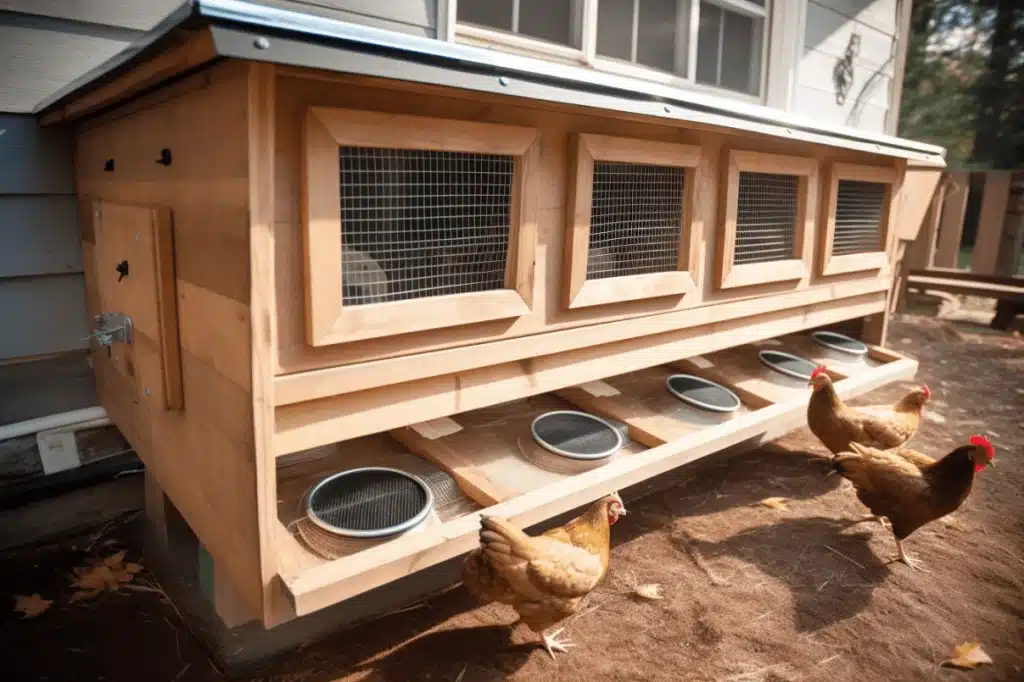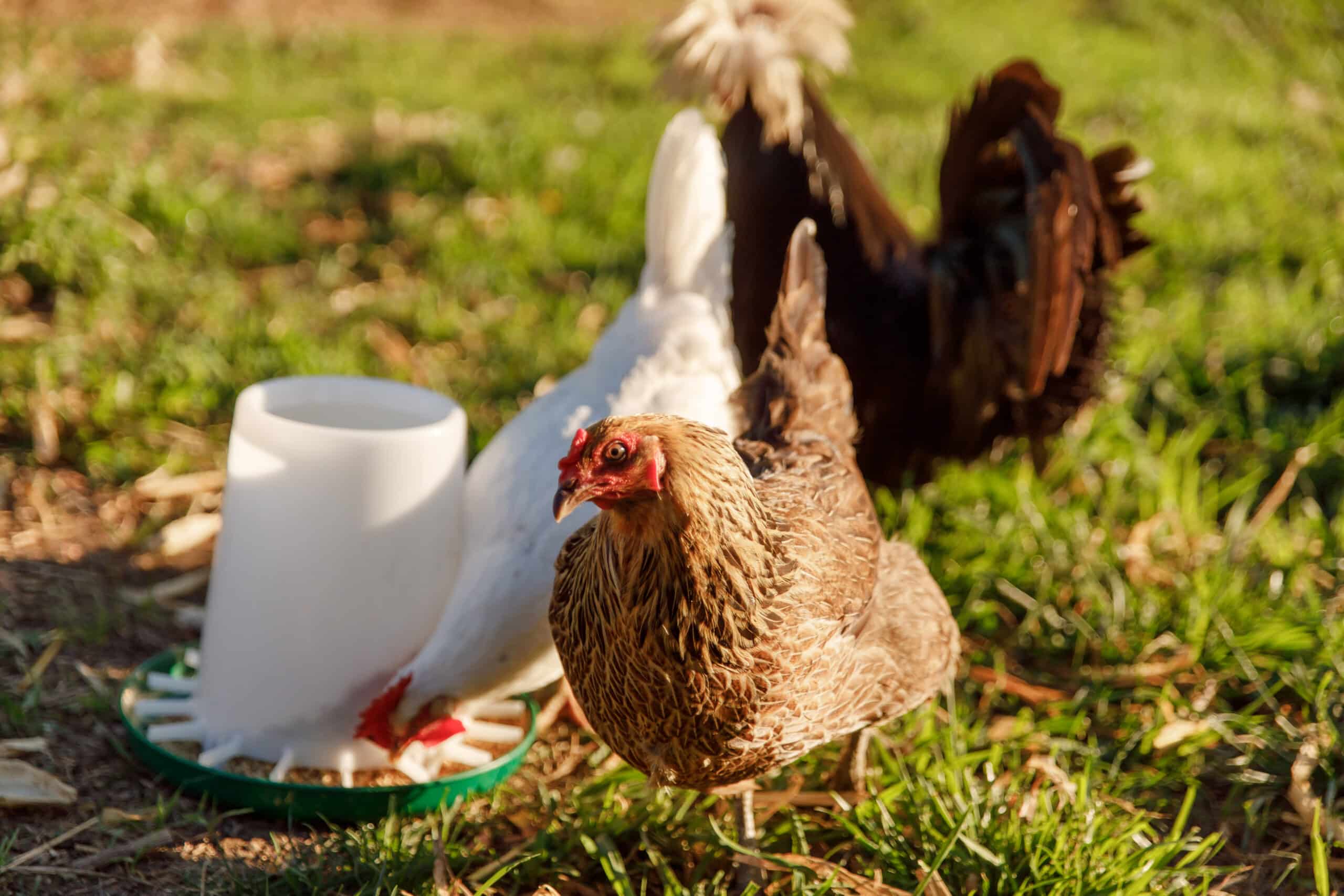Does a feathered companion surround you? If so, have you ever wondered what it really means to create a happy, healthy, and productive chicken environment? The answer mostly comes in between feeding and building a chicken coop, but it requires beyond that.
Whether it is your careful consideration of feeding practice or ensuring air ventilation in the nesting area, every factor helps you to build a lovely ecosystem. The major influential areas in raising a productive chicken need special attention.
Feeders That Fit Their Needs
Feeding isn’t just about nutrition—it’s also about accessibility, cleanliness, and minimizing waste. A perfect feeder system is determined by food accessibility, even for the lower pecking order.
Hanging or trough-style feeders help keep feed off the ground, reducing contamination from droppings and spilled bedding. Automatic feeders can also be helpful, especially if you have a larger flock or a busy schedule. The goal is to provide enough feeder space so that birds can eat comfortably without competition.
Frequently cleaning the living area, especially maintaining cleanliness in the laying beds, is essential. Muddy area can instantly cause health issues by increasing bacterial formation. So, keeping them away from moisture goes a long way in ensuring the chicken is fully stocked.
Airflow Matters More Than You Think

Proper airflow circulation is as significant as the coop design, and its importance is reflected in the results. When ventilation drops, it could possibly cause ammonia build-up, which ultimately triggers moisture-related respiratory issues and sometimes frostbite in colder climates.
Proper ventilation doesn’t mean drafts—it means controlled airflow that removes stale, damp air and brings in fresh air without chilling your birds. Roof vents, wall openings near the ceiling, and adjustable windows are great tools for managing this balance.
The airflow prevents the chickens from heat stress, particularly in summer. Meanwhile, in winter, it reduces the humidity inside the coop. No matter the size of your chicken coop, adequate ventilation ensures mental stability for the chickens.
Space to Move and Roam
Cramped quarters can cause many problems, including aggressive behavior, stress, and lower egg production. Chickens need enough space to stretch their wings, dust bathe, and engage in natural behaviors like foraging and pecking.
Generally, aim for at least 3–4 square feet per bird inside the coop and 8–10 square feet in the outdoor run. More space is always better, especially if your birds will be confined during bad weather.
Roosting bars should also be spaced appropriately so chickens can perch comfortably at night. Overcrowding on the roost can lead to nighttime squabbles and stress, which can affect chickens’ overall mood and health.
Cleanliness That Supports Good Health
A clean coop is a happy coop. Regular cleaning keeps parasites, disease, and bad odors at bay. Daily spot checks, weekly bedding changes, and seasonal deep cleans help create a healthy environment where your birds can thrive.
Deep litter systems can effectively manage waste and provide insulation, but they still require regular attention. Nesting boxes should be checked often and kept dry and clean to encourage consistent egg laying.
Using natural materials like straw, pine shavings, or sand helps control odors and keeps the floor dry. Clean water and fresh bedding may seem basic, but they’re essential to maintaining a healthy living space.
Enrichment and Mental Stimulation
Chickens aren’t just egg-laying machines—they’re curious and intelligent animals that benefit from mental stimulation. They can become bored without it, leading to bad behaviors like feather pecking or egg-eating.
Simple enrichment can include hanging vegetables, scattering scratch grains, or adding logs and branches for perching and exploring. Mirrors, treat dispensers, and rotating toys can also provide entertainment, especially during long periods of confinement.
Letting your chickens forage in a safe outdoor area boosts their physical and mental health. It gives them a chance to scratch, peck, and hunt for bugs—behaviors that satisfy natural instincts and reduce boredom.
Safety and Shelter from Predators
Even the most luxurious coop won’t keep your flock happy if it isn’t safe. Predators are a constant threat, especially at night. Your coop should be constructed with sturdy materials and secure latches on all doors and windows.
Hardware cloth is more effective than chicken wire for keeping out raccoons, foxes, and other intruders. Elevating the coop off the ground can also help deter burrowing animals.
Lighting can be useful for security, but avoid harsh lights inside the coop at night. Chickens need darkness to rest properly, and ensuring they feel safe while they sleep is essential to reducing stress and promoting better egg production.
Final Thoughts
Feeding and collecting the eggs doesn’t mean you are raising a happy flock; it is about creating a thriving environment that provides a valid snack for their physical and mental needs. Whether it is a feeding system you need to take a look over or a safer coop design that prevents them from predators, every factor pays you two times more than you invest.
When considering these factors that are really important in raising a flock, you are not one among many flock owners, but you are the one who creates a happy ecosystem.

